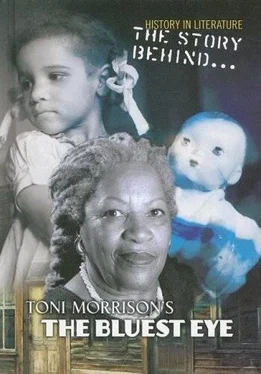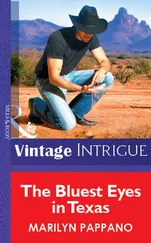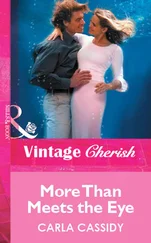Where would I see a naked man?"
"I don't know. I just asked."
"I wouldn't even look at him, even if I did see him. That's dirty.
Who wants to see a naked man?" Pecola was agitated. "Nobody's father would be naked in front of his own daughter. Not unless he was dirty too."
"I didn't say 'father.' I just said 'a naked man.'"
"Well…"
"How come you said 'father'?" Maureen wanted to know. "Who else would she see, dog tooth?" I was glad to have a chance to show anger. Not only because of the ice cream, but because we had seen our own father naked and didn't care to be reminded of it and feel the shame brought on by the absence of shame. He had been walking down the hall from the bathroom into his bedroom and passed the open door of our room. We had lain there wide-eyed. He stopped and looked in, trying to see in the dark room whether we were really asleep-or was it his imagination that opened eyes were looking at him? Apparently he convinced himself that we were sleeping. He moved away, confident that his little girls would not lie open-eyed like that, staring, staring. When he had moved on, the dark took only him away, not his nakedness. That stayed in the room with us. Friendly-like.
"I'm not talking to you," said Maureen. "Besides, I don't care if she sees her father naked. She can look at him all day if she wants to. Who cares?"
"You do," said Frieda. "That's all you talk about."
"It is not."
"It is so. Boys, babies, and somebody's naked daddy. You must be boy-crazy."
"You better be quiet."
"Who's gonna make me?" Frieda put her hand on her hip and jutted her face toward Maureen. "You all ready made. Mammy made."
"You stop talking about my mama."
"Well, you stop talking about my daddy."
"Who said anything about your old daddy?"
"You did."
"Well, you started it."
"I wasn't even talking to you. I was talking to Pecola."
"Yeah. About seeing her naked daddy."
"So what if she did see him?" Pecola shouted, "I never saw my daddy naked. Never."
"You did too," Maureen snapped. "Bay Boy said so."
"I did not."
"You did."
"I did not."
"Did Your own daddy, too!" Pecola tucked her head in-a funny, sad, helpless movement. A kind of hunching of the shoulders, pulling in of the neck, as though she wanted to cover her ears. "You stop talking about her daddy," I said. "What do I care about her old black daddy?" asked Maureen. "Black? Who you calling black?"
"You!"
"You think you so cute!" I swung at her and missed, hitting Pecola in the face. Furious at my clumsiness, I threw my notebook at her, but it caught her in the small of her velvet back, for she had turned and was flying across the street against traffic.
Safe on the other side, she screamed at us, "I am cute! And you ugly! Black and ugly black e mos. I am cute!" She ran down the street, the green knee socks making her legs look like wild dandelion stems that had somehow lost their heads. The weight of her remark stunned us, and it was a second or two before Frieda and I collected ourselves enough to shout, "Six-finger-dog-tooth-meringue-pie!" We chanted this most powerful of our arsenal of insults as long as we could see the green stems and rabbit fur. Grown people frowned at the three girls on the curbside, two with their coats draped over their heads, the collars framing the eyebrows like nuns' habits, black garters showing where they bit the tops of brown stockings that barely covered the knees, angry faces knotted like dark cauliflowers. Pecola stood a little apart from us, her eyes hinged in the direction in which Maureen had fled. She seemed to fold into herself, like a pleated wing. Her pain antagonized me.
I wanted to open her up, crisp her edges, ram a stick down that hunched and curving spine, force her to stand erect and spit the misery out on the streets. But she held it in where it could lap up into her eyes. Frieda snatched her coat from her head. "Come on, Claudia. 'Bye, Pecola." We walked quickly at first, and then slower, pausing every now and then to fasten garters, tie shoelaces, scratch, or examine old scars. We were sinking under the wisdom, accuracy, and relevance of Maureen's last words. If she was cute-and if anything could be believed, she was-then we were not. And what did that mean? We were lesser. Nicer, brighter, but still lesser. Dolls we could destroy, but we could not destroy the honey voices of parents and aunts, the obedience in the eyes of our peers, the slippery light in the eyes of our teachers when they encountered the Maureen Peals of the world.
What was the secret? What did we lack? Why was it important? And so what? Guileless and without vanity, we were still in love with ourselves then. We felt comfortable in our skins, enjoyed the news that our senses released to us, admired our dirt, cultivated our scars, and could not comprehend this unworthiness. Jealousy we understood and thought natural-a desire to have what somebody else had; but envy was a strange, new feeling for us. And all the time we knew that Maureen Peal was not the Enemy and not worthy of such intense hatred. The Thing to fear was the Thing that made her beautiful, and not us. The house was quiet when we opened the door. The acrid smell of simmering turnips filled our cheeks with sour saliva. "Mama!" There was no answer, but a sound of feet. Mr.
Henry shuffled part of the way down the stairs. One thick, hairless leg leaned out of his bathrobe. "Hello there, Greta Garbo; hello, Ginger Rogers." We gave him the giggle he was accustomed to. "Hello, Mr. Henry. Where's Mama?"
"She went to your grandmaw's. Left word for you to cut off the turnips and eat some graham crackers till she got back. They in the kitchen." We sat in silence at the kitchen table, crumbling the crackers into anthills. In a little while Mr. Henry came back down the stairs.
Now he had his trousers on under his robe. "Say. Wouldn't you all like some cream?"
"Oh, yes, sir."
"Here. Here's a quarter. Gone over to Isaley's and get yourself some cream. You been good girls, ain't you?" His light-green words restored color to the day. "Yes, sir. Thank you, Mr. Henry. Will you tell Mama for us if she comes?"
"Sure. But she ain't due back for a spell."
Coatless, we left the house and had gotten all the way to the corner when Frieda said, "I don't want to go to Isaley's."
"What?"
"I don't want ice cream. I want potato chips."
"They got potato chips at Isaley's."
"I know, but why go all that long way?
Miss Bertha got potato chips."
"But I want ice cream."
"No you don't, Claudia."
"I do too."
"Well, you go on to Isaley's. I'm going to Miss Bertha's."
"But you got the quarter, and I don't want to go all the way up there by myself."
"Then let's go to Miss Bertha's. You like her candy, don't you?"
"It's always stale, and she always runs out of stuff."
"Today is Friday. She orders fresh on Friday."
"And then that crazy old Soaphead Church lives there."
"So what? We're together. We'll run if he does anything at us."
"He scares me."
"Well, I don't want to go up by Isaley's. Suppose Meringue Pie is hanging around. You want to run into her, Claudia?"
"Come on, Frieda. I'll get candy." Miss Bertha had a small candy, snuff, and tobacco store.
One brick room sitting in her front yard. You had to peep in the door, and if she wasn't there, you knocked on the door of her house in back. This day she was sitting behind the counter reading a Bible in a tube of sunlight. Frieda bought potato chips, and we got three Powerhouse bars for ten cents, and had a dime left. We hurried back home to sit under the lilac bushes on the side of the house. We always did our Candy Dance there so Rosemary could see us and get jealous. The Candy Dance was a humming, skipping, foot-tapping, eating, smacking combination that overtook us when we had sweets. Creeping between the bushes and the side of the house, we heard voices and laughter. We looked into the living-room window, expecting to see Mama.
Читать дальше











